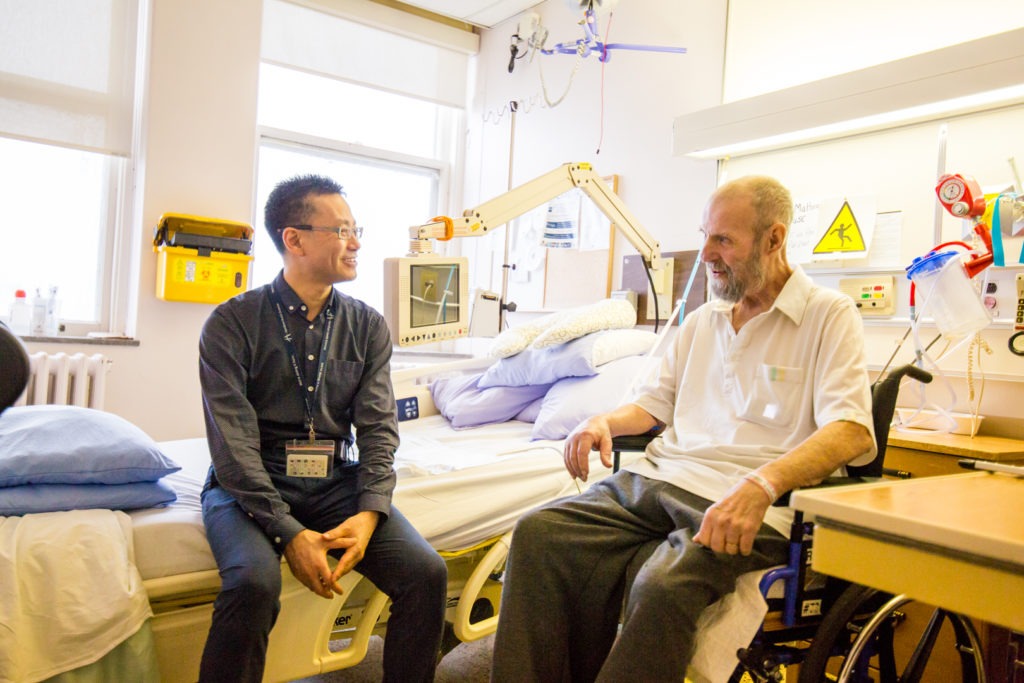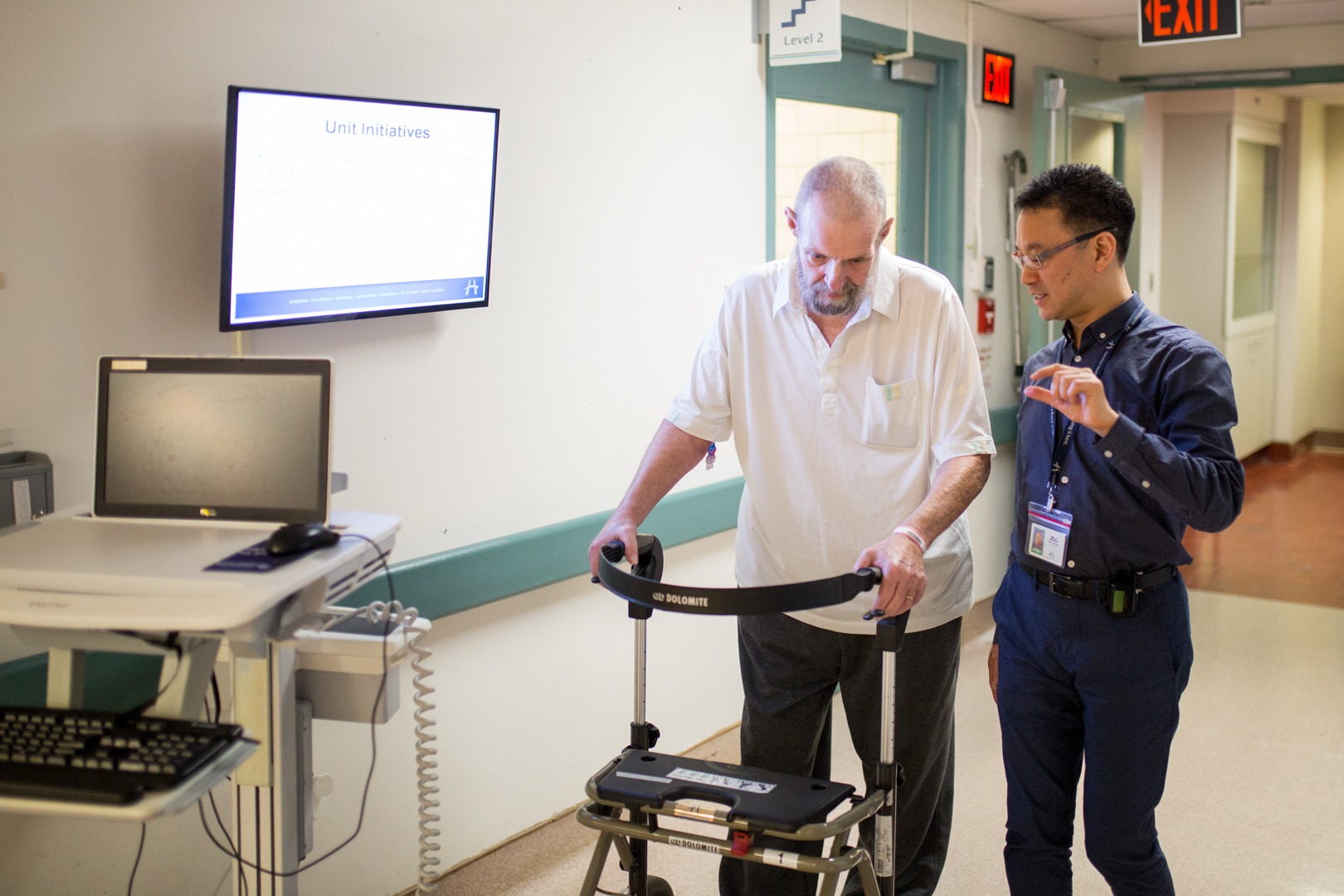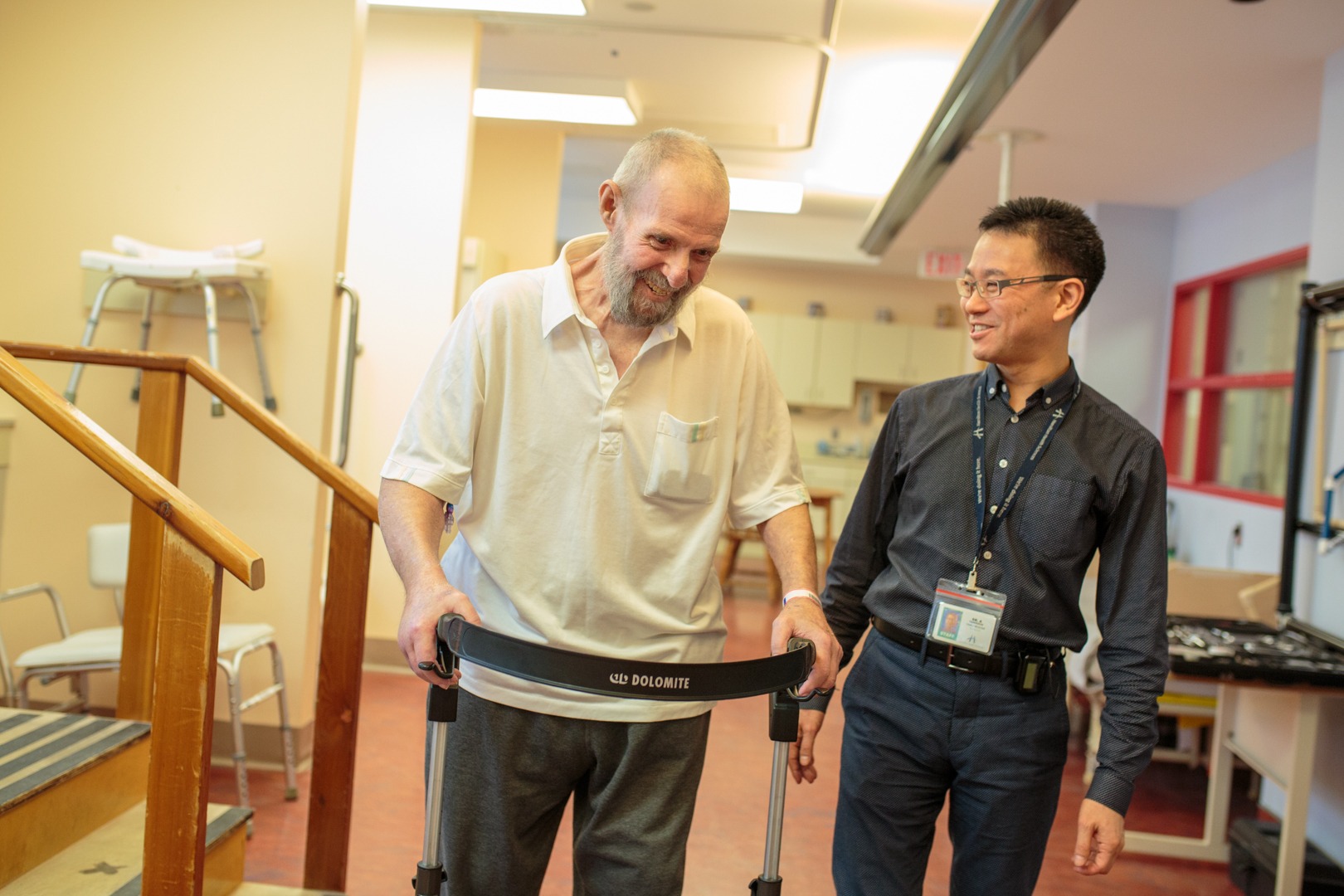
Introducing… a palliative care physician
Dr. Alan Taniguchi is a Palliative Care Physician who is currently based at Juravinski Hospital & Cancer Centre. He has also worked extensively at McMaster Children’s Hospital and St. Peter’s Hospital. He has been with the Hamilton Health Sciences family of hospitals for 25 years.
What do you love most about your job?
I love hearing patients’ life stories – how they met their spouses; how they forged a life despite adversity; their joys, their sorrows; what they’ve learned along the journey. Having intimate, heartfelt conversations with patients about their disappointments and hopes and about what they want for their time remaining is special. These conversations unfortunately are not commonplace in our health care system, yet it is through such conversations that perhaps suffering can be eased and healing can occur.

The challenging days at work are ones where the system gets in the way of providing quality care to patients and families.
Describe one of your most challenging days at work
The challenging days at work are ones where the system gets in the way of providing quality care to patients and families. Days where patients are lying on stretchers in hallways, awaiting beds on the ward; while other patients are being abruptly discharged when they may not be quite ready; where staff are working short under high degrees of stress; where policies and procedures do not truly support best care but must be adhered to; where wait times for investigations are long and where resources are limited; where one more form needs to be completed before anything happens. In some ways, every day is challenging for these types of reasons. The worst days feel like we are swimming upstream, when everything requires effort just to provide the basic care that patients need – when it’s difficult to find calm amongst the chaos.

What do you wish you had more time for in your job?
The joke on our palliative care consultation team is that we never have time for ice cream! Oftentimes there seems to be limited time to invest in effective collaboration: communicating with colleagues; engaging in shared decision-making; providing one another with mutual support. The best collaborative efforts require clinicians to intentionally spend time working with one another.
